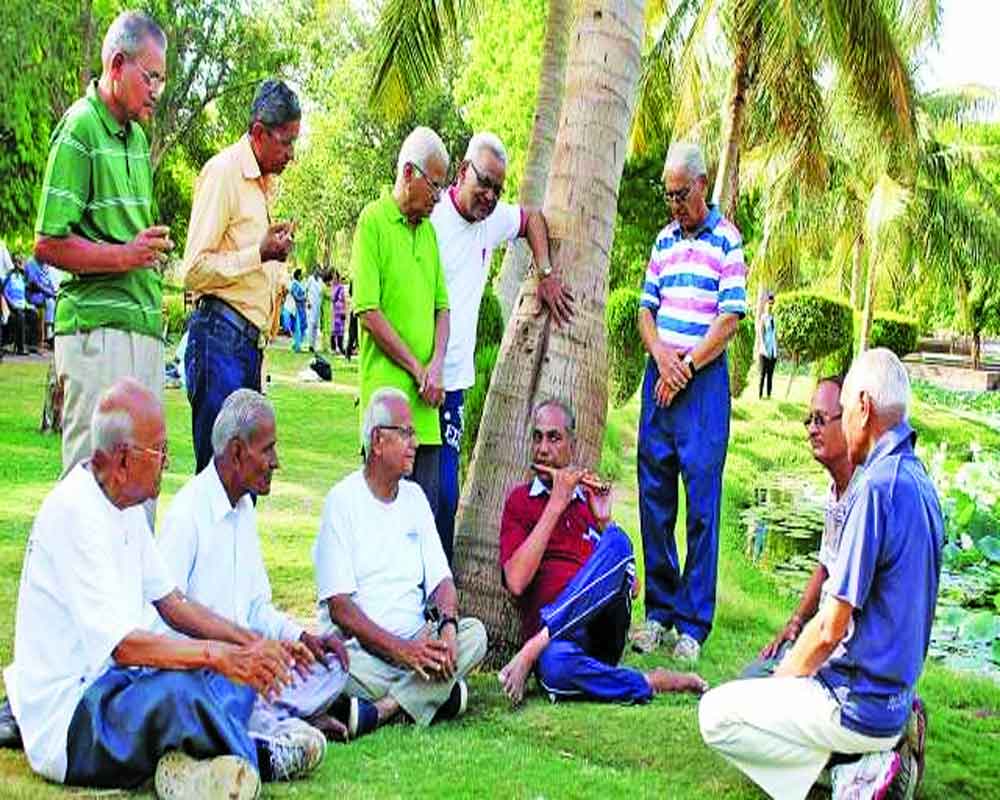Vagaries of life get more pronounced in its fag end; it is the time when a person needs financial help from the Govt, but we are heading in the opposite direction
Several developmental themes have been in currency. They are supposed to generate hope and en-capsule the aspirations of progress and growth. One of them is "ease of doing business," another is "ease of living," yet another is, "go vocal for local "etc. In some cases, some version of the theme has been around for decades.Illustratively, the theme of 'ease of doing business has been around for many decades. It emphasises how many, many rules and regulations are around, governing business. The concern has been that excessive regulation has sapped the pleasure of getting involved with an enterprise. Similarly, the number of regulatory items which govern individual lives has often been a subject matter of much grief to many.
Many things are accepted in life by many because there is no easy way of fighting them. Similarly, the theme of going 'vocal for local,' may echo the slogan that was given in the early 20th century, where the theme was about going "swadeshi." The above statements do not mean, in any way, reducing the worth and the thrust of the new slogans. They at least keep a concern alive.
It would be useful to look at the actual content and delivery of any of these slogans. As an illustration, one could consider 'ease of doing business. In this case, there is structured evidence to the effect that the number of rules and regulations in many cases has been reduced and the agony of running from pillar to post has been considerably alleviated, if not mitigated. That may be a subject matter of discussion in its own right.
As far as ease of living is concerned, perhaps it will be worthwhile reflecting, illustratively, on the life of a citizen beyond the age of 65. The senior citizens of the concerned generation. not so long ago, were able to plan their retirement on their savings at an assured rate of interest, which was at least 10%. It had a sovereign guarantee and one was assured of the amount of income one would be having. The extent of one's earnings is assuredly an input to one's 'ease of living.' What one could have as 'income' has to be earned, has to be assured, because re-employment post-65 is always difficult. The energy level and agility start to reduce and the dependence syndrome increases.
This reality has to be one of the underpinnings of a proactive way of handling the financial scheme for the elderly. At one stage a 'generous' package of Rupees Fifteen Thousand was 'allowed' to them at 8% annual interest. They could do it twice. Frugal as that might have been, even that has been recently revised and the number of years for which this deposit could be taken out has been reviewed and reduced. The wisdom of this approach is open to question not just from the humanitarian point of view but also the usefulness of it all to overall financial prudence.
The irony becomes all the more poignant when, say, the railways nibble at the limited concession they were making to age. That too in an era when 'free' this and 'free' that is being distributed to various politically useful, target groups. This is not to mention the waivers that the rich and the powerful are reported to attract. Equity and fair play has to be one of the basic assumptions of public policy and not just doing what is the 'simplest' way of handling financial pressures on governance.
The ease of living was, in an era, not so long ago, (in many cases), supported by the joint family network. Gradually, not only did the economic patterns change but so also did the sociological patterns. The joint family network is no longer available with its pervasiveness and ingenuousness. The system of pension in many cases still exists but the inflation level, being what it is, has made it increasingly less adequate. The change in times altered many things. Not only did the social networks alter in character, but the financial scenario also changed. This is not a value judgment but a simple recognition of a fact of life.
Concurrently as the rate of interest of banks started to reduce, the quantum of pensions became increasingly difficult to manage and live on. Sectoral batches of new entrants to the post-65 cut-off segment were entering it without any pension and had to live on their 'savings.' The savings were fragile and, as observed, the interest on the amounts got further inadequate.
So much for the ease of living in a so-called era of 'populism.' The pensioners over the age of 65 do not matter as a vote bank. Their worth is politically not significant, and, of course, it's been a long time since one even heard of the slogan of 'the welfare society.The time has come in the interest of common justice (if nothing more) to ask: is this a part of the content of 'ease of living in its comprehensiveness and pervasiveness?
(The writer is a well-known management consultant of international repute. The views expressed are
personal.)


























